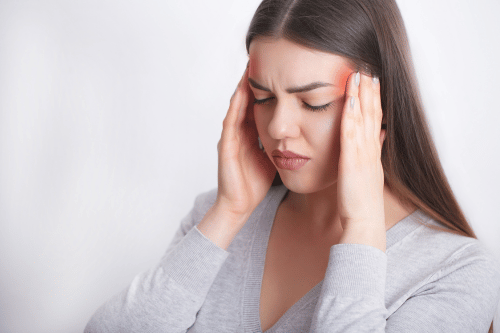Benefits of Quitting Weed: The Health Benefits Explained
Understanding Marijuana Use
Marijuana use is widespread, but many people underestimate its negative effects on mental health and physical health. Smoking weed regularly can lead to marijuana dependence, affecting cognitive function, sleep quality, and social interactions. Some individuals develop cannabis use disorder, which can interfere with daily life and contribute to mental health conditions such as anxiety, depression, and bipolar disorder.
The Impact of Marijuana on Health

Effects on Cognitive Function
Long-term marijuana use disorder can result in cognitive impairment, affecting problem-solving abilities, short-term memory loss, and overall brain function. The brain receptors responsible for cognitive abilities may become desensitized, leading to brain fog and mental illnesses over time.
Emotional and Psychological Consequences
Smoking marijuana is linked to mental health disorders, including psychiatric disorders such as bipolar disorder and schizophrenia. Chronic use can also cause mood swings, emotional dysregulation, and unhealthy thought patterns that contribute to substance abuse issues.
Short-Term Benefits of Quitting
Improved Mental Clarity
After the cessation of marijuana use, many people experience improved memory, mental clarity, and increased cognitive function. Reduced brain fog allows for better decision-making and social interactions.
Enhanced Motivation and Productivity
Quitting regular marijuana use leads to increased motivation, improved work performance, and better engagement in alternative activities like physical fitness and creative outlets.
Better Emotional Stability
Eliminating weed addiction can help stabilize mood swings and reduce emotional distress. Former marijuana users report feeling more emotionally resilient, which improves personal relationships and social life.
Long-Term Benefits of Quitting
Restoration of Cognitive Function
Over time, the cognitive deficits caused by chronic marijuana use start to reverse. This allows for better focus, problem-solving abilities, and overall brain health.
Improved Physical Health
Quitting marijuana smoking enhances lung function, reducing respiratory issues like chronic cough, lung infections, and asthma symptoms. It also decreases the risk of heart attack, heart disease, and other cardiovascular conditions by improving blood circulation and reducing strain on blood vessels.
Strengthened Relationships and Social Interaction
Regular cannabis use can lead to social withdrawal. Quitting allows individuals to reconnect with loved ones and form healthier relationships while avoiding the negative consequences associated with substance abuse.
The Withdrawal Process

Common Withdrawal Symptoms
Marijuana withdrawal symptoms vary from person to person, but common signs include:
- Irritability and mood swings
- Sleep disturbances and changes in sleep patterns
- Stomach pain and nausea
- Headaches and physical discomfort
- Cravings and emotional distress
Timeline of Withdrawal Effects
- First 24-72 hours – Peak withdrawal symptoms, including anxiety, mood swings, and insomnia.
- First 1-2 weeks – Symptoms start to ease, with sleep quality and appetite returning to normal.
- One month and beyond – Noticeable improvements in mental health, lung health, and emotional stability.
Coping Strategies for Withdrawal
- Engaging in physical activity to boost mental health and manage stress
- Practicing alternative activities like creative outlets and meditation
- Seeking support from supportive people or a 12-step program
- Eating a balanced diet to improve physical health improvements
Overcoming Marijuana Addiction
Signs of Addiction
- Using marijuana smoke on a regular basis despite harmful consequences
- Developing a high tolerance and needing more to feel the effects
- Prioritizing cannabis use disorder over responsibilities and personal relationships
Importance of Recognizing Dependency
Acknowledging a substance use disorder is the first step toward a path to recovery. Recognizing the aspects of marijuana dependence allows individuals to seek effective treatments.
Effective Treatment Options
Professional Counseling and Therapy
Behavioral therapy, including Motivational Enhancement Therapy, helps individuals overcome marijuana dependence by addressing negative impact on daily life.
Support Groups and Community Resources
Programs like Marijuana Anonymous and Alcoholics Anonymous provide peer support. Many addiction treatment programs accept major insurance providers, making professional treatment more accessible.
Tips for Successfully Quitting
Setting Realistic Goals and Expectations
Having a treatment program with clear goals helps individuals stay committed to a healthier lifestyle.
Creating a Supportive Environment
Removing marijuana paraphernalia and avoiding triggers can support long-term recovery process.
Developing Healthy Coping Mechanisms
Replacing addictive behaviors with healthy activities, such as exercise, hobbies, and mindfulness, promotes a balanced lifestyle.
Supporting Loved Ones
Recognizing Signs of Marijuana Use in Others
Signs of chronic users include:
- Persistent respiratory conditions like chronic cough
- Avoidance of responsibilities due to cannabis dependence
- Spending excessive money on weed addiction
How to Offer Support Without Judgment
Encouraging a cannabis-free lifestyle without being judgmental can help loved ones take steps toward a brighter future.
Personal Growth After Quitting
Financial Savings from Discontinuing Use
Avoiding illegal drugs like Mary Jane leads to significant financial savings that can be redirected toward healthy activities and personal goals.
Building a Weed-Free Lifestyle
Focusing on physical benefits and social interactions fosters a healthier lifestyle free from the adverse effects of substance abuse.
Enhancing Personal Development and Self-Awareness
Quitting frequent cannabis use leads to personal growth, emotional benefits, and a greater sense of control over daily life.
Conclusion
The effects of smoking weed can be damaging, but quitting leads to many amazing benefits for both mental and physical health. With the right treatment for cannabis use, a strong support system, and healthy lifestyle changes, individuals can overcome marijuana addiction and achieve long-term success. Whether seeking help from healthcare professionals, enrolling in addiction treatment programs, or embracing a cannabis-free lifestyle, quitting offers a path to a healthier, more fulfilling life.










